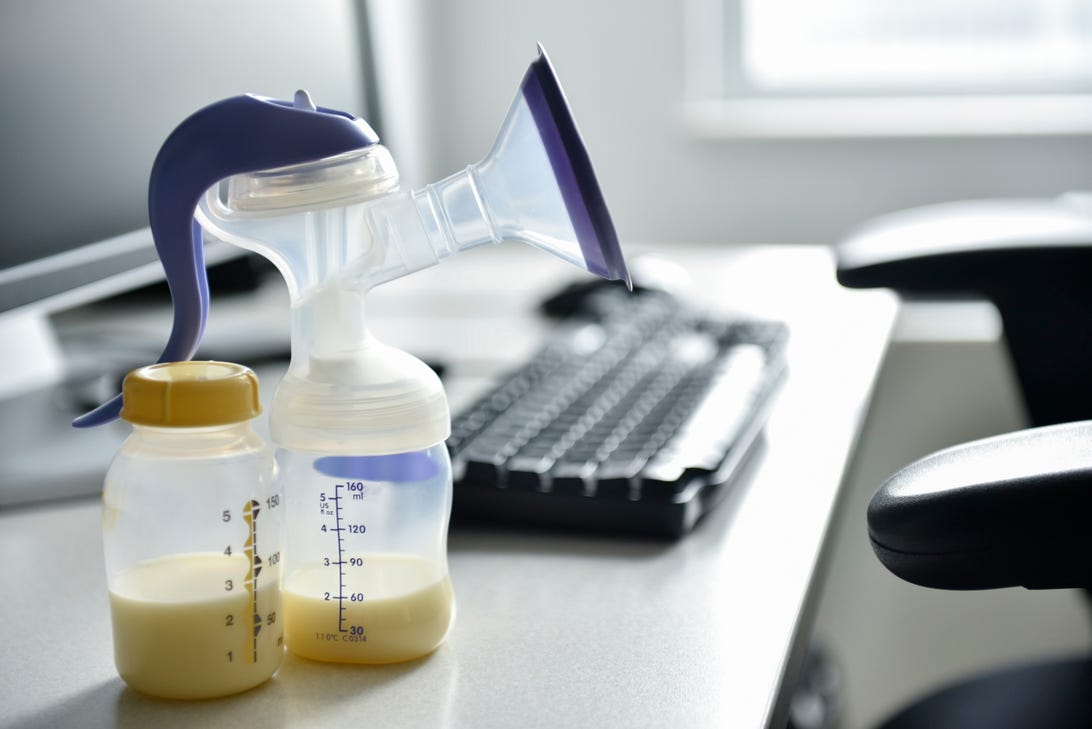What to Know About Getting COVID While Pregnant – CNET [CNET]

It’s normal to feel discouraged if you’ve done everything to prevent getting sick, but still test positive for COVID-19. Getting sick while pregnant, however, can cause a lot of extra stress and sometimes more serious problems — even with viruses less serious than the one dragging on a global pandemic. So if you get COVID-19 while pregnant, what do you do?
Take care of yourself and stay relaxed, first of all. While it’s true COVID-19 does cause more severe disease in people who are pregnant compared to people of the same age who aren’t, the risk of severe illness is still low overall, according to the US Centers for Disease Control and Prevention.
Experts aren’t entirely sure why pregnancy can raise a person’s risk of developing severe COVID-19 disease, but there are a few ideas. Changes in the body that occur during pregnancy could increase someone’s chances of becoming severely ill with a respiratory virus like COVID-19. It may also be because a person’s immune system is naturally depressed during pregnancy in order to prevent their body from rejecting the growing fetus, Dr. Ella Speichinger, an OB-GYN at University of Missouri Health Care, told CNET in May.
But the pandemic, like your growing belly, is changing by the day. It’s hard to keep on top of the current booster guidance, as well as the emergence of new subvariants like omicron BA.2. (This is on top of other pregnancy news and guidance, including what foods you should avoid.)
Here’s what the experts say now about catching COVID-19 during pregnancy.
What to do if you get COVID while pregnant
The CDC says that people who are pregnant and have COVID-19 symptoms should contact their health care provider within 24 hours. However, for most parents-to-be who have COVID-19, advice on what to do when sick will be similar to the advice for other people: stay home, isolate from other people in your house and take care of yourself by resting and staying hydrated.
Some research shows that high fever, during the first trimester especially, could cause problems. If you develop a fever from COVID-19, your doctor may recommend you take acetaminophen or a fever-reducing medication.
A long list of health conditions (pregnancy and being postpartum are two of them) can increase someone’s risk of severe COVID-19 disease, including hospitalization and death. If you’re pregnant and also have a medical condition, such as diabetes, asthma or high blood pressure, your doctor may recommend additional treatment.
“We can provide treatment for COVID-19 in pregnancy,” Dr. Jeanne Sheffield, a maternal-fetal medicine expert at Johns Hopkins University, said in a post. “Several of the medications currently in use are also being used for our pregnant women, and early studies have shown they can provide some benefit.”
COVID-19 treatments available and believed to be effective against the omicron variant include Paxlovid, some monoclonal antibody therapies and remdesivir. While not all treatments were directly studied for use in pregnant people, your doctor may recommend one if the benefits of treating COVID-19 outweigh the unknowns.

According to the CDC, COVID-19 is unlikely to be passed through breast milk. However, your doctor may recommend pumping as close contact can spread the virus.
JGI/Jamie GrillGiving birth and breastfeeding with COVID: Can COVID pass through breast milk?
According to the American College of Obstetrics and Gynecologists, you most likely won’t need to change your birth plan if you test positive for COVID-19 before delivery, but talk with your OB-GYN or provider. Having COVID-19 also doesn’t necessarily mean your doctor will recommend a c-section.
If you give birth with COVID-19, the ACOG notes that, according to current reports, the risk of a baby getting COVID-19 does not change based on whether the baby stays in your room or in a separately. Isolating your baby in another room may be encouraged, however, if you are very ill or if your baby is at high risk of getting very sick (all newborns are at higher risk, but some may have other medical conditions).
Can COVID-19 pass through breast milk? It isn’t likely, say the CDC and ACOG. But the ACOG recommends letting someone who isn’t sick bottle feed your baby your breast milk, to avoid passing the infection to the infant.
Can I pass COVID to my baby during pregnancy?
The ACOG says that there are some reports of COVID-19 being passed to a baby because their parent was sick during pregnancy, but these reports are rare.
Impacts of COVID-19 on the pregnant person and their baby mostly center on delivery, as women with COVID-19 are more likely to give birth preterm or experience a stillbirth than women who don’t have COVID-19.
The risks of COVID-19 for both the parent and child may be reduced if the parent was vaccinated before or during their pregnancy, however, as seen in a growing number of studies on pregnancy, COVID-19 and the vaccines.

![what-to-know-about-getting-covid-while-pregnant-–-cnet-[cnet]](https://i0.wp.com/upmytech.com/wp-content/uploads/2022/02/52261-what-to-know-about-getting-covid-while-pregnant-cnet-cnet.jpg?resize=800%2C445&ssl=1)
![amazon-fire-tv-black-friday-deals:-$25-fire-tv-stick-4k,-plus-the-first-big-savings-on-omni-tvs-–-cnet-[cnet]](https://i0.wp.com/upmytech.com/wp-content/uploads/2021/11/44037-amazon-fire-tv-black-friday-deals-25-fire-tv-stick-4k-plus-the-first-big-savings-on-omni-tvs-cnet-cnet.png?resize=390%2C205&ssl=1)
![age-gracefully-with-healthy-eyes:-4-tips-for-optimal-eye-health-–-cnet-[cnet]](https://i0.wp.com/upmytech.com/wp-content/uploads/2023/10/147236-age-gracefully-with-healthy-eyes-4-tips-for-optimal-eye-health-cnet-cnet.jpg?resize=300%2C177&ssl=1)